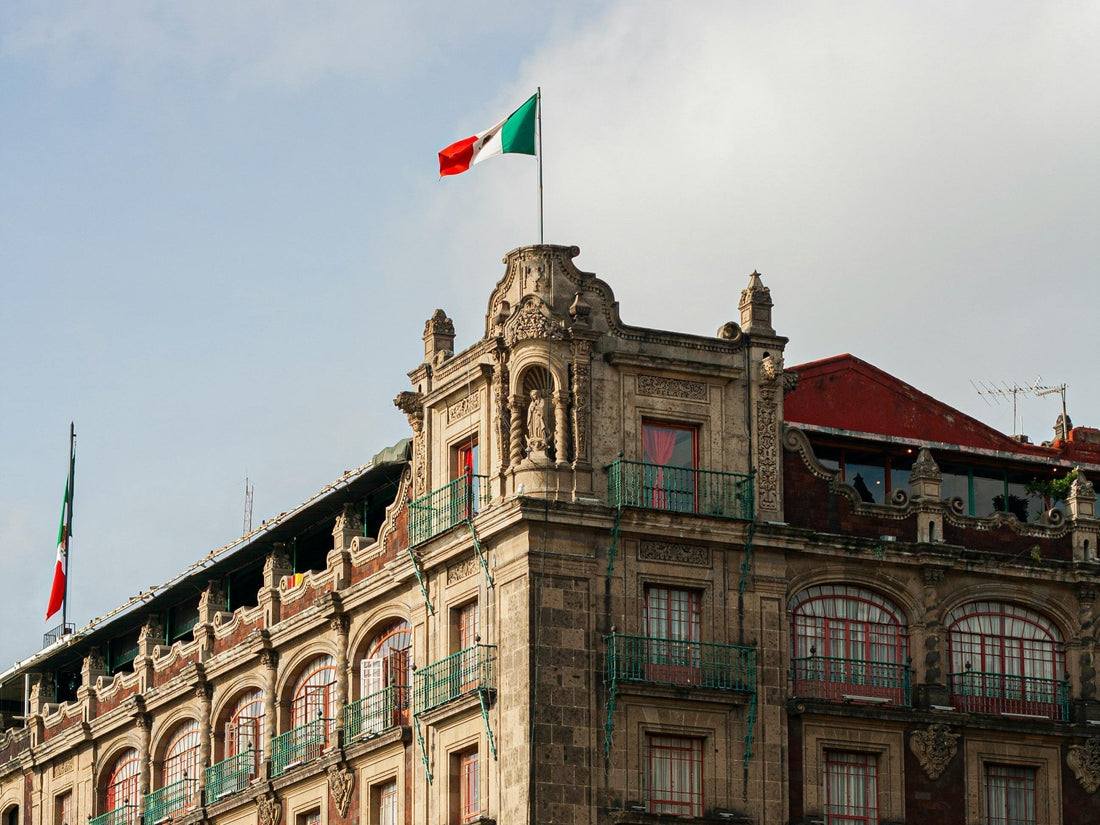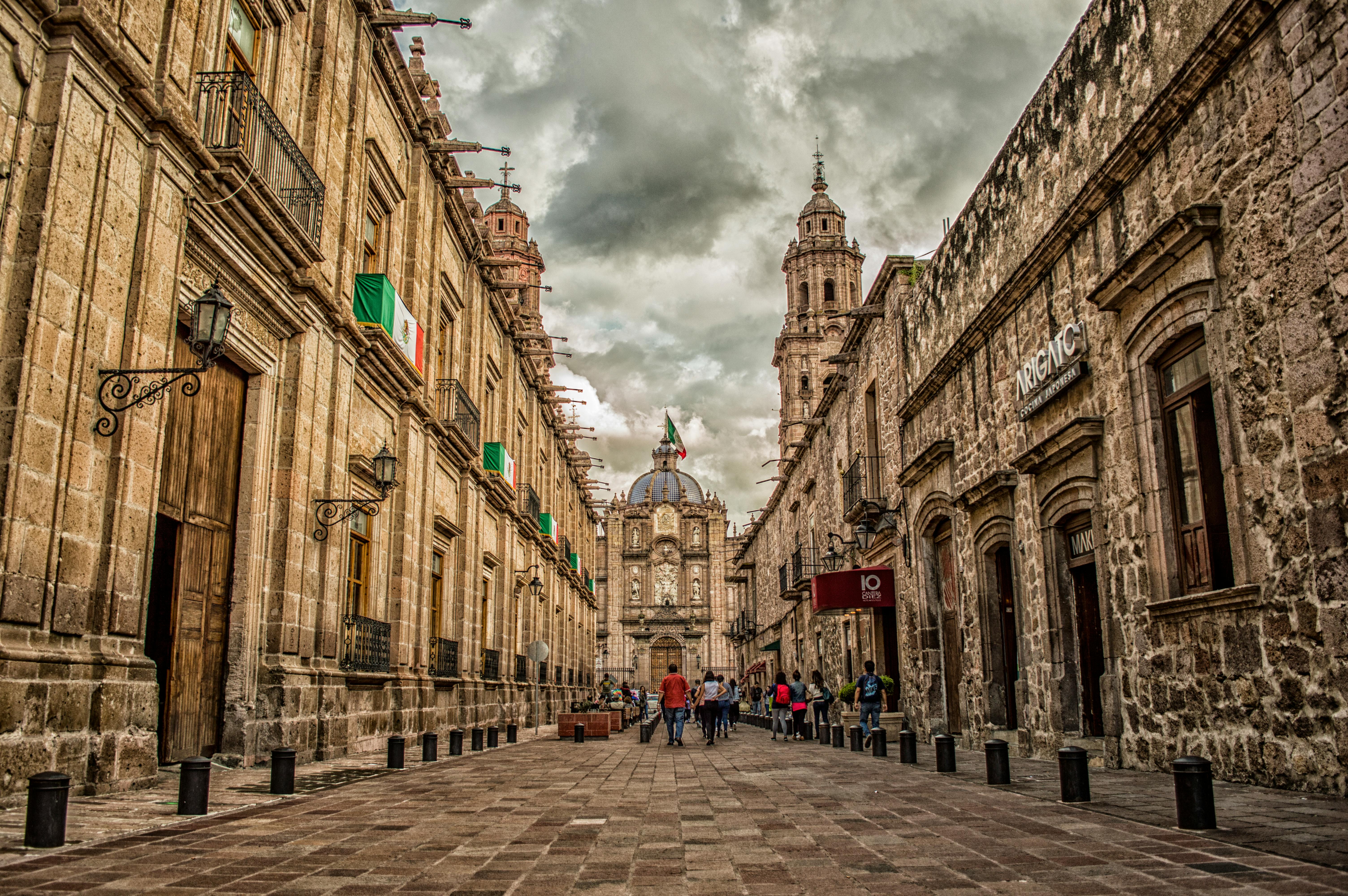
20 Everyday Mexican Spanish Expressions with Cultural Roots
Share
The Richness of Mexican Spanish
Mexican Spanish is a dynamic and expressive dialect filled with unique phrases that reflect the country’s rich history, humor, and way of life. Many of these expressions have deep cultural roots, stemming from indigenous languages, historical events, and everyday customs. If you’re learning Spanish and want to sound more natural while understanding native speakers, mastering Mexican expressions is essential.
A great way to immerse yourself in real Mexican Spanish is by reading Short Stories in Mexican Spanish, which introduces you to everyday vocabulary and expressions through engaging narratives. Learning Spanish isn’t just about grammar—it’s about embracing the culture that shapes the language.
Now, let’s explore ten common Mexican expressions and their origins.

Common Mexican Spanish Expressions and Their Cultural Background
1. ¡Órale!
This versatile word can express surprise, encouragement, or agreement, depending on the context. It comes from the verb orar (to pray), but in Mexican Spanish, it evolved into an exclamation used in different ways:
- As encouragement: “¡Órale, apúrate!” (Come on, hurry up!)
- As surprise: “¡Órale! ¿De verdad pasó eso?” (Wow! Did that really happen?)
- As agreement: “Nos vemos a las 8.” “¡Órale!” (See you at 8.” “Alright!”)
2. Chido
Chido is a synonym for genial (cool) and is widely used in Mexico to describe something good, fun, or impressive. The origin is debated, but some linguists suggest it may come from the Romani word chiro (which means ‘good’).
- “Ese concierto estuvo chido.” (That concert was cool.)
- “Tu camisa está chida.” (Your shirt is cool.)
3. No manches
This is an informal way to express disbelief or surprise, similar to “No way!” in English. It comes from a softer version of a more vulgar phrase (no mames), making it more socially acceptable in most situations.
- “Ganamos la lotería.” “¡No manches!” (We won the lottery.” “No way!”)
- “No manches, ¿de verdad hizo eso?” (No way, did he really do that?)
4. Aguas
Though agua means "water," the phrase aguas is a warning that translates to “watch out!” This expression comes from colonial times when people would shout aguas before throwing dirty water from their homes onto the street. Today, it’s used to warn someone of potential danger.
- “¡Aguas con el coche!” (Watch out for the car!)
- “Aguas, ese lugar es peligroso.” (Be careful, that place is dangerous.)
5. Neta
Neta means “truth” or “real deal” and is used to ask for sincerity or emphasize honesty. Some believe it originates from the Nahuatl word netla, meaning “true” or “authentic.”
- “Dime la neta, ¿te gusta mi vestido?” (Tell me the truth, do you like my dress?)
- “¡La neta es que me encantó la película!” (Honestly, I loved the movie!)
6. Qué onda
This is a common greeting in Mexico, similar to “What’s up?” in English. It literally translates to “What wave?” and is used informally among friends. The origin is unclear, but it might come from the idea of “waves” representing energy or mood.
- “¡Qué onda, amigo!” (What’s up, friend!)
- “Todo bien, ¿y tú qué onda?” (All good, what about you?)
7. Sale y vale
This phrase is used to confirm or agree to something, similar to “Alright, sounds good.” Sale comes from salir (to leave or go out), and vale is equivalent to “okay” or “it’s worth it.”
- “Nos vemos a las 6.” “¡Sale y vale! (See you at 6.” “Alright, sounds good!”)
8. Estar cañón
If something is cañón, it means it’s tough, amazing, or extreme, depending on the context. The word cañón originally meant “cannon” or “barrel,” but in slang, it means something intense.
- “La situación económica está cañona.” (The economic situation is tough.)
- “Ese deportista es cañón para correr.” (That athlete is incredibly good at running.)
9. Chamba
This word means “job” or “work” and is derived from the Quechua word champar, which means “to squeeze” or “to work hard.” It’s widely used in Mexico to refer to employment.
- “Necesito encontrar chamba pronto.” (I need to find a job soon.)
- “Mi chamba es muy demandante, pero me gusta.” (My job is very demanding, but I like it.)
10. Echar la mano
This phrase means “to lend a hand” or “help someone out.” Echar means “to throw” or “to give,” and mano means “hand.”
- “¿Me puedes echar la mano con esta caja?” (Can you help me with this box?)
- “Siempre le echa la mano a quien lo necesita.” (He always helps those who need it.)

11. Fregar
In Mexican Spanish, fregar has multiple meanings depending on the context. It can mean “to scrub” (like when cleaning), “to annoy,” or even “to ruin something.” This word comes from Latin fricare, meaning “to rub.”
- As cleaning: “Voy a fregar los trastes.” (I’m going to wash the dishes.)
- As annoying: “¡Ya deja de fregar!” (Stop bothering me!)
- As ruining: “Se me cayó el celular y ya se fregó.” (I dropped my phone, and now it’s ruined.)
12. Padrísimo
A superlative of padre (which, in slang, means “cool” or “great”), padrísimo is used to describe something amazing. It is widely used across Mexico in informal conversations.
- “El viaje estuvo padrísimo.” (The trip was amazing.)
- “¡Qué padrísima tu fiesta!” (Your party was so cool!)
13. Ponerse las pilas
Literally translating to “put the batteries on,” this phrase means to wake up, focus, or put in effort. It’s used as a motivational push to get someone to take action.
- “Tienes que ponerte las pilas si quieres pasar el examen.” (You have to get serious if you want to pass the exam.)
- “Voy a ponerme las pilas con el ejercicio.” (I’m going to get serious about exercising.)
14. Tirar la toalla
This phrase is the Spanish equivalent of “throw in the towel,” meaning to give up on something. It comes from boxing, where a coach throws a towel into the ring to signal surrender.
- “No voy a tirar la toalla, seguiré intentándolo.” (I won’t give up, I’ll keep trying.)
- “Después de tantos intentos fallidos, decidió tirar la toalla.” (After so many failed attempts, he decided to give up.)
15. Lana
While lana literally means "wool," in Mexican slang, it’s a common term for money. The origin likely comes from the idea that wool was once a valuable commodity.
- “No tengo lana para salir hoy.” (I don’t have money to go out today.)
- “¿Cuánta lana cuesta ese celular?” (How much money does that phone cost?)
16. Cuate
A colloquial term for “friend” or “buddy,” cuate originates from the Nahuatl word coatl, meaning “twin.” In Mexico, it’s widely used among friends.
- “Mi cuate y yo vamos al cine.” (My buddy and I are going to the movies.)
- “Es muy buena onda, seguro se hará tu cuate.” (He’s a cool guy, he’ll surely become your friend.)
17. Echar relajo
This expression means to have fun, joke around, or create chaos in a playful way. Relajo refers to disorder, but in a lighthearted sense.
- “Vamos a la fiesta a echar relajo.” (Let’s go to the party and have some fun.)
- “Deja de echar relajo y ponte a trabajar.” (Stop messing around and get to work.)
18. Ser codo
If someone is codo (literally “elbow”), they are stingy or unwilling to spend money. The idea comes from the physical action of keeping one’s arms close to the body, symbolizing someone who doesn’t want to share.
- “No seas codo, invita las cervezas.” (Don’t be stingy, buy the beers.)
- “Mi tío es muy codo, nunca paga nada.” (My uncle is very cheap, he never pays for anything.)
19. ¡Ándale!
This versatile expression is used for encouragement, agreement, or even surprise. It combines anda (from andar, meaning “to go” or “to move”) with an exclamation.
- As encouragement: “¡Ándale, apúrate!” (Come on, hurry up!)
- As agreement: “Vamos al cine.” “¡Ándale!” (Let’s go to the movies.” “Alright!”)
- As surprise: “¡Ándale! No sabía eso.” (Wow! I didn’t know that!)
20. ¡Ya mero!
This phrase means “almost” or “just about to happen.” It’s used to indicate that something is close to being completed.
- “¿Ya terminaste tu tarea?” “¡Ya mero!” (Did you finish your homework?” “Almost!”)
- “¡Ya mero llegamos!” (We’re almost there!)
Why Learning These Expressions Enhances Your Spanish
Mexican Spanish is full of color, humor, and cultural significance. Understanding these expressions will not only help you sound more natural but also allow you to connect with locals on a deeper level. Whether you’re traveling to Mexico, speaking with native speakers, or simply enjoying the richness of the language, these expressions will enrich your vocabulary.
If you want to see these phrases in action and improve your Spanish through engaging stories, check out Short Stories in Mexican Spanish. With fun narratives and essential vocabulary, this book is a fantastic way to deepen your understanding of everyday Mexican Spanish.

Final Thoughts
Mexican Spanish is more than just a dialect—it’s a reflection of history, traditions, and everyday life. These 20 expressions provide a glimpse into the culture and mindset of native speakers. By incorporating them into your conversations, you’ll not only improve your Spanish but also enjoy the language in a more meaningful way.
